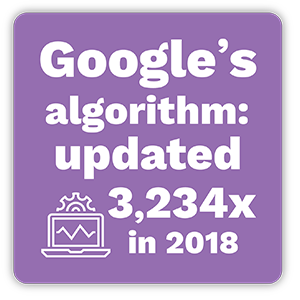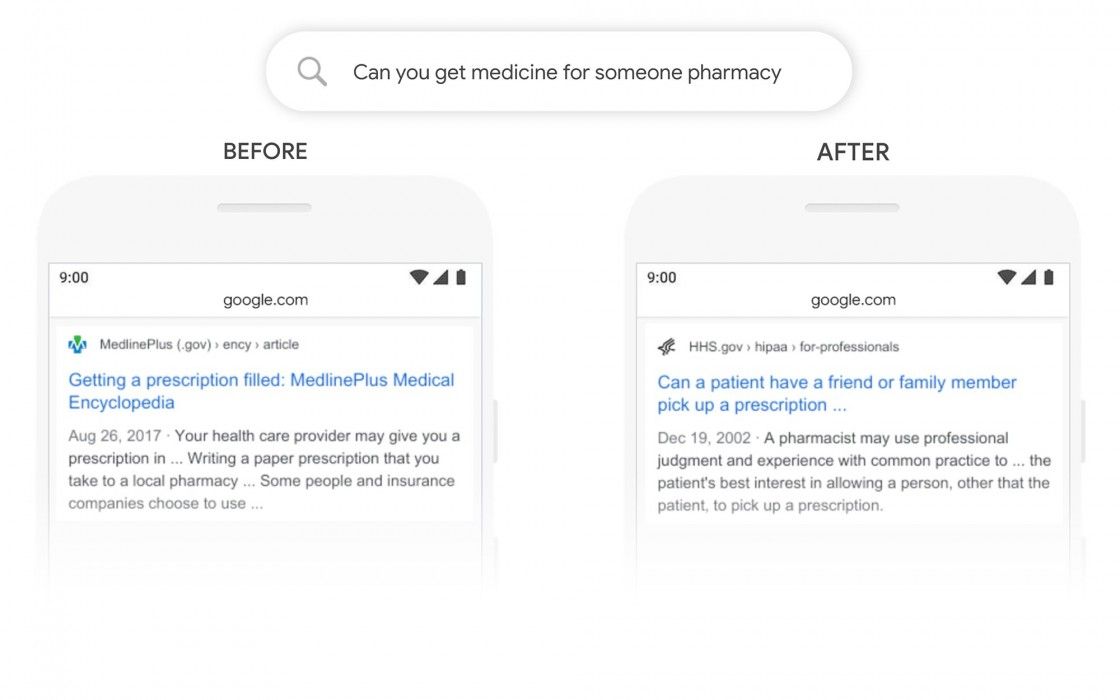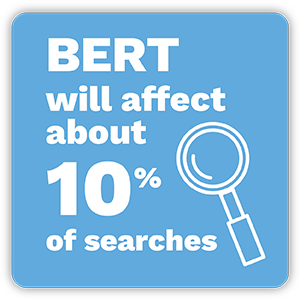How “BERT” Changes Google’s Algorithm For The Better
Emma Rodner-Tims Digital Direct Marketing, Trends and POVHave you ever tried Googling something and the results that pop up aren’t exactly what you need or seem slightly irrelevant to the search? Well, Google is working to fix that.
Google recently announced that they’re implementing a change to their search algorithm — the system that “decides” which search results populate and in what order. While Google’s algorithm changes all the time without notice or alert, this case is unique because not only did Google reveal that their algorithm would be changing, but they divulged the details right on their blog.

To understand Google search now, it’s important to know how it worked before.
Prior to the change, Google would scan a person’s search query for important key words and leave out the words it considered not important — however this would unintentionally eliminate words that provided context to what is being asked of the search engine. If context is disregarded when gleaning potential results, then the results populated may be very different than what the individual was searching for.
To reconcile this, Google is basing their algorithmic change on Bidirectional Encoder Representations from Transformers or BERT for short. Through machine learning, BERT works to understand, interpret, and contextualize what is being searched for as a whole.
So what does all this mean in terms of search results? Here is an example from Google’s blog:

Before the change, Google used key words such as “medicine” and “pharmacy” to drive and populate search results. What this failed to do was really understand and take into consideration the intent and context of the search: an individual wanting to pick up someone else’s medicine from a pharmacy.
With the implementation of BERT, the very important words “can,” “you,” “get,” and “someone” are no longer omitted but instead understood as a part of determining the context and the ask of the search request. The top result that now comes up directly answers whether a patient can have a friend or family member pick up their prescription, which is much more helpful than the Medline Plus article that was previously suggested.
How will this affect future searches?

This BERT change is among the biggest updates to Google search in its history (only major updates are announced and receive coverage by media outlets). To put that in perspective, Google updated their algorithm 3,234 times in 2018 with little notice or attention.
According to Google, BERT will affect 1 out of every 10 searches, or about 10%.* As of right now, the impacted searches are limited to those in English. After making significant learnings in English, Google will take those learnings and apply them to other languages in the future.
In terms of digital marketing and SEO, it may be too soon to tell exactly how BERT will influence analytics and results data, especially considering only 10% of queries will be affected. However, that does not mean SEO best practices should be forgotten. It is still important and necessary to write great, high-quality content to be found by potential consumers.
But, as a user, this means searches will be interpreted in a more humanistic way and provide more matched and relevant results. So the next time you’re searching on Google, don’t worry about key words, just ask a question the same way you would ask a friend.
*Source: Google Blog